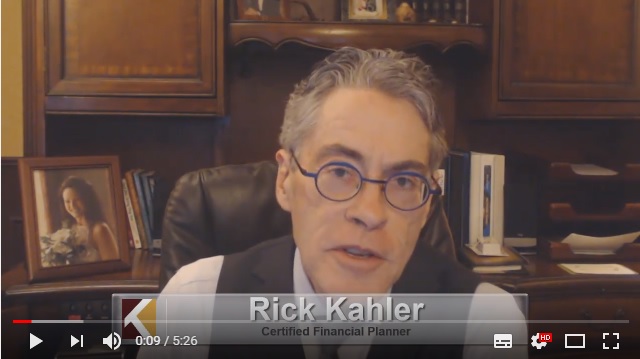The following blog was originally published in My Bank Tracker.
Was 2014 a year of financial chaos for you? Did nearly every month present a struggle to pay all of the bills? Were you constantly worried about money and unable to, or afraid of being unable to pay your bills?
Have you made up your mind that 2015 will be a much better year for you financially?
Well, if any of the following apply, I have bad news for you: 2015 isn’t going to be any different, possibly even if you substantially increase your income. Why is that? Because you have bad spending and saving habits. Let’s take a look at them and get to the bottom of your financial woes. If it is truly going to be a new kind of year for you, then it is time to develop new and better habits and save money in the new year.
1. You’re ‘house poor’ — your housing is more than 25 percent of your income
If your rent or mortgage is more than 25 to 28 percent of your total income, or 25 percent of your take home pay if you have a lot of other expenses, you’re spending more than you can afford on housing.
This figure, about one-fourth of your income, has been a rule-of-thumb for a long time. That is because it tends to hold true for most people in most situations, even those who live in areas where they don’t need to have a car, because other expenses usually make up the difference.
This means that you can generally afford to spend $250 for every $1,000 you make per month. Let’s break that down. If you have a salary of $50,000 a year, that comes down to about $4,167 per month. Let’s err on the side of caution and round that to $4,000 per month. That’s about four times $250 you can safely afford to spend on rent or a mortgage, or about $1,000. If you make $70,000 a year, that is about $5,800 per month, which translates to 5.8 times $250, or about $1,450 per month. If you’re outside this safety zone, it’s time to reconsider.
If you can move to a less expensive place, you’ll give yourself a lot of financial breathing room. However, moving is expensive as well, so consider the long-term strategy. Another course of action would be to increase your income, either by taking on additional work or a roommate. None of these options may sound very inviting, but if you want some financial comfort, you have changes to make.
2. Your debt-to-income ratio is too high
Your debt-to-income ratio is the amount you owe vs. the amount you make. It might sound complicated, but to calculate this figure, simply add up all of your monthly debts, including housing costs, insurance, loan payments, estimate utilities, and any other recurring expenses, and divide that number by your monthly income. Move the decimal point two places to the right, and you now have a percentage.
The general rule of thumb for this figure is usually about 36 percent, so if you make $50,000 per year, this amount would be about $1,500. Less $1,000 for housing, your payments toward debt shouldn’t exceed about $500, and we’ll be quick to remind you that paying the minimum payment on your credit card bills is not the way to get out of debt.
Now you’ve learned about what many call the “28/36 rule,” so let’s move on to your budget.
3. Budget? What budget?
Not having a budget is one of the most dangerous habits anyone can have. It’s an easy way to let money trickle out into undiscovered lands, never to return, or to invade in the form of trinkets and clothes you will never wear.
Don’t worry: it’s not as hard as it sounds. If you’ve already calculated your housing costs and debt-to-income ratio, then you have most of the information you need. Next, add up what you expect to pay for groceries, clothing, gasoline and other incidental purchases. Ideally, once added up, this figure should be less than your salary, and the rest should go into savings.
4. You’ve got spending issues
If impulse purchases or shelling out for the latest and greatest new (and expensive) gadgets, clothing or other trends, then you probably have spending issues. If you often make purchases you regret, especially when the credit card bill arrives, you just might have a spending problem or you could even be a credit card abuser.
It’s easier to say “I will have more self control” than it can be to put good non-spending habits into practice. Start working out a mental dialog with yourself about how you will talk yourself out of making frivolous or impulse purchases, and start leaving the credit cards at home.
5. You are ‘cash poor’ every month due to problem No. 4
This one is worth re-iterating. If you find yourself at the end of the month with more month left over than money, yet you’ve managed to buy a lot of unnecessary things, you need to develop ways to talk yourself out of this habit. See the links in the sidebar for more tips on how to improve in this area and go from being a spender to a saver.
6. You would not survive in an emergency
Forget about zombies. Could you survive a health emergency, the loss of your job, or a really expensive car or home repair? Do you have three to six months sacked away? If you feel like you don’t have room to breathe financially, and you don’t have money saved for an emergency, then you really don’t have room to breathe.
Put the other steps mentioned into action and get on track this year! You will live more happily every day without the stress from worrying about how bills will get paid. Simplify your lifestyle, streamline your bills and get the new year off to a great start.
About the author: MyBankTracker is your one stop destination for banking and financial news and is one of the strongest financial communities on the web. We are dedicated to bringing the most up to date and relevant banking information to consumers. You can also Compare daily bank reviews and top banking rates.






0 Comments